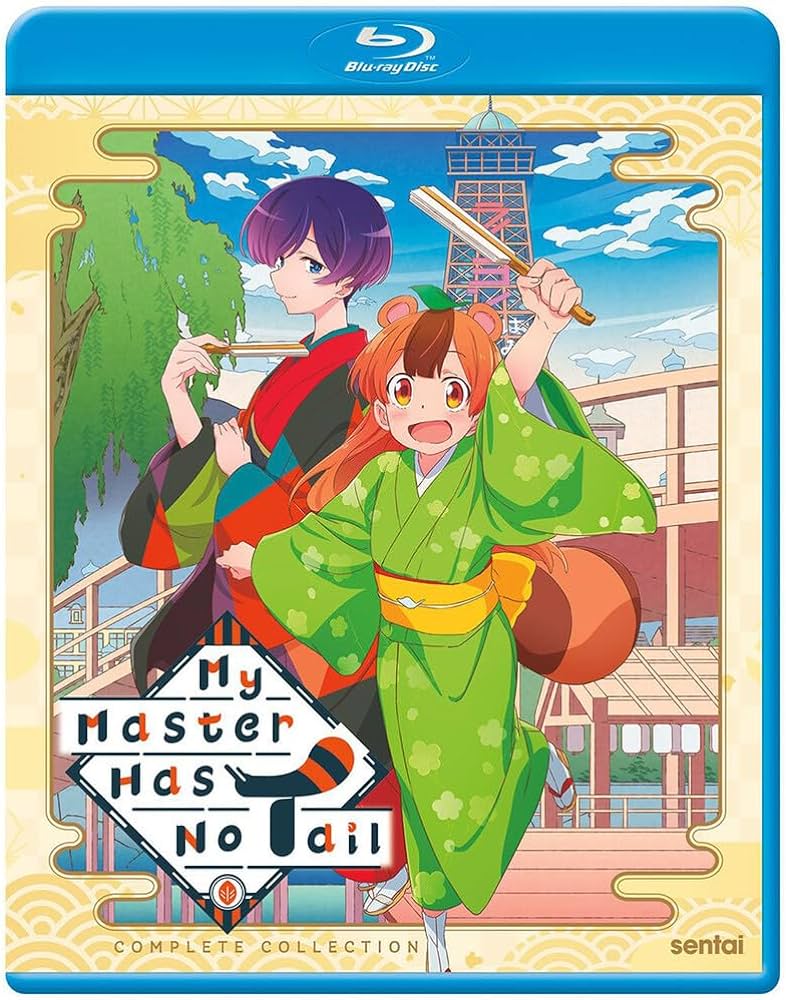Arriving recently on blu-ray from Sentai Filmworks is the charming story of a tanuki creature who wants to learn the ancient art of Japanese storytelling. Come sit for a spell and have a nice chuckle, will you?
Mameda is a magical tanuki creature who can shapeshift at will, electing to disguise herself as a human much of the time since tanukis are seen as a nuisance and at times hunted. Mameda’s life totally changes when she happens to see a Raukgo performance. Rakugo is the ancient art of Japanese storytelling involving props, musical accompaniment and often twists in the tale to entertain and enlighten. Mameda becomes so enraptured by the idea that she decides to dedicate her life to learning the art of Rakugo. To do so, she approaches the masterful rakugoka that she witnessed perform, Bunko Daikokutei, desiring to serve as her apprentice. At first Bunko has no desire to take on an apprentice due a promise from the past, but she eventually comes around to Mameda’s charms and begins to school Mameda in the ways of clever storytelling.
My Master Has No Tail is a gentle, charming series for the most part aside from a particularly thuggish Yakuza-esque sub-plot. Mameda is adorable as one would expect and the series shows a real affection for the Taisho era with its attention to detail. In particular, it offers an immersive look into a specific aspect of Japanese culture that many don’t know about. Rakugo as an art form goes back to the Edo period in Japan in the 17th century, but this series takes place during the early 1900s where Rakugo was having something of a resurgence in popular culture. It’s a fascinating practice involving a solo person up on stage performing all the parts, like a multi-character play with one actor. The series is almost immersive to a fault though, tossing you straight into the middle of these stories with little to no context. Fortunately there’s a little post-credits segment where our friendly tanuki explains aspects of the stories in more detail. While the series is fairly light with little in the way of emotional stakes, it does introduce a bit more depth in the latter half of the series when Mameda is forced to prove her worth to the other star performer rakugoka or risk being barred from being Bunko’s apprentice for good. We also learn more about Bunko’s past and what drew her to the art form as well. The show starts a bit on the shallow side from a character development standpoint but does eventually give us much needed understanding of the various characters’ motivations.
My Master Has No Tail’s ebullient visual style is captured very well in Sentai’s crisp and vibrant transfer, and the Japanese DTS-HD 2.0 audio track comes through very cleanly, important for a series so reliant on pretty rapid-fire dialogue at times. The extras are the usual clean OP & ED animations with a smattering of Japanese promos.
While My Master Has No Tail isn’t an earth-shattering series with world-ending stakes, it’s a pleasant and inviting series that offers a peek into an aspect of Japanese history and culture that many not be aware of. I enjoyed it and think it’d be a nice series to check out if you like slice-of-life anime with a dash of fantasy.

